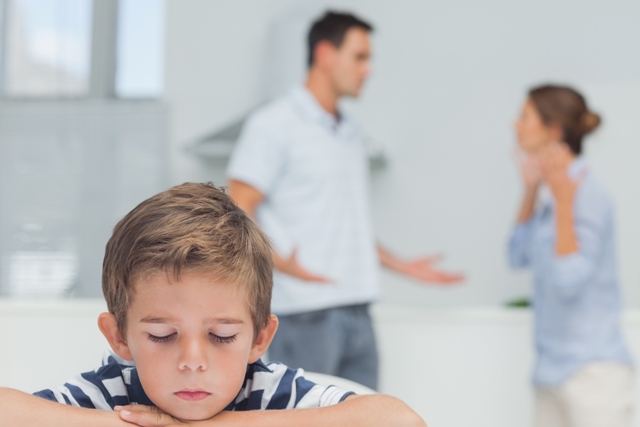
When parents aren’t getting along there are a number of possibilities— none of them good.
A major aspect in child raising is the protection of the children. When there is ongoing parental conflict this is apt to suffer.
The parents get distracted. They are busy fighting with each other. This may mean they are too busy with anger with each other— or too worn out, to attend to what the children need. The children may lack supervision or structure.
Another common possibility, is that one or both parents may take their anger with each other out on the child. Johnny may get scolded because he spilled the milk.
Children learn quickly how to get involved in parental conflict to make it stop. This is called triangling.
Children learn how to distract from a fight between parents. They may do it with disobedience, illness, poor grades, and failure to grow up emotionally are a few.
When parents can’t rely on each other one of them or both may use the child for emotional support. This can take the form of complaining about the other parent.
It can also take the form of being too permissive. It takes two parents to raise every child. If this is not available, the parent missing the emotional support may be too permissive. If a needy parent sets limits, the child may get angry. The parent can’t tolerate that without support from the other parent so the limits suffer.
When parents aren’t getting along, growing up doesn’t look like much fun. Children who decide this can get stuck and not want to grow up.
Not wanting to grow up may also mean the belief that the child can’t leave. That child can’t go if he or she sees himself or herself as needing to take care of a parent.
When parents don’t get along, they can’t provide a good model of adulthood or how to make marriage work. This can produce another generation of people with relationship problems unless there are other resources for the child to model.
Such dynamics are sources of anxiety in families. When those anxieties reach high levels, the problems may escalate to the jail or the hospital. These are the children that break the law, as we saw often in The Family Therapy Court Referral Program.
This program, a pilot project with the Municipal Court of Atlanta, ran for twenty five years with a zero recidivist rate! It used family therapy as an alternative to jail and fines with a design to understand the problem BEHIND the offense and deal with those families who participated. The program ended when the primary judge who executed the judicial part of the program retired.
From a hospital perspective, these are the children who are suicidal or abuse drugs and alcohol. We look at the family system to understand what may be amiss and usually find divided parenting and parental conflict.
Family Therapy can help families to get on the right track and correct the dysfunction. It takes a great deal of research in these times to find a well- qualified family therapist but it is worth the effort!
